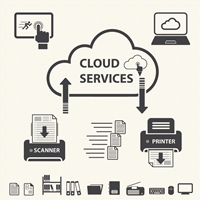As businesses seek the best way to prepare for a potential disaster, many are turning to hybrid cloud strategies to back up their data and IT systems and provide a viable platform for employee workflow during recovery operations. According to ITPro, improving business continuity planning is a primary advantage that the hybrid cloud provides, helping to ensure that third-party backups, testing environments and hot site systems are in place during crisis management.
With a hybrid cloud solution in place, businesses are able to take advantage of all of the benefits offered by both cloud and on-premise IT systems. This balance allows for tertiary data backup, secondary systems in place for hot site operations and advanced management over key systems involved in recovery, such as communications. This also allows companies to migrate seamlessly between physical and cloud-based systems, operating onsite applications and servers that can switch over to cloud-based services with ease during a crisis.
"Hybrid cloud helps give each group what it wants: Security and control for IT operations and speed and agility for line-of-business operations," IDC noted in its 2013 CloudTrack Survey. "To the extent that IT can incorporate external public cloud services into formalized IT procurement, implementation and governance processes, IT becomes a facilitator of rather than a roadblock to more dynamic business-ready IT."
The introduction of hybrid cloud solutions can create a much more stable business continuity plan and operational structure that enables growth outside of disaster planning as well. Companies looking to properly integrate cloud services within their operations may want to consult with continuity of operations experts in order to ensure proper deployment of solutions that will both support and optimize workflow in times of need.

